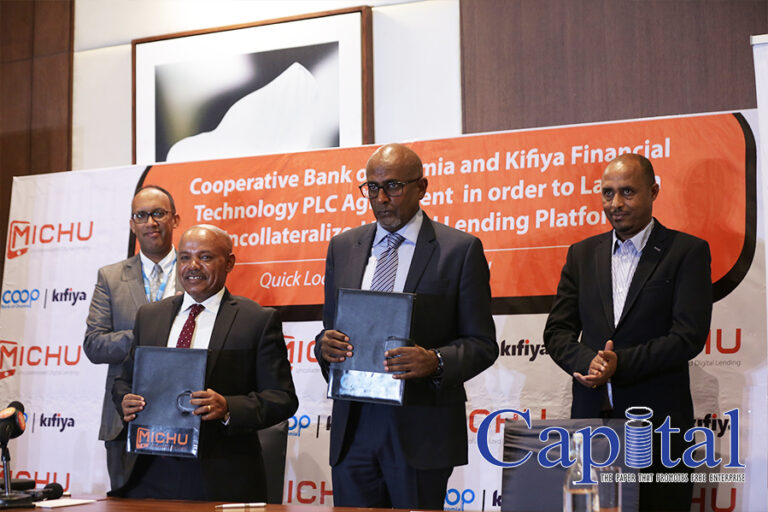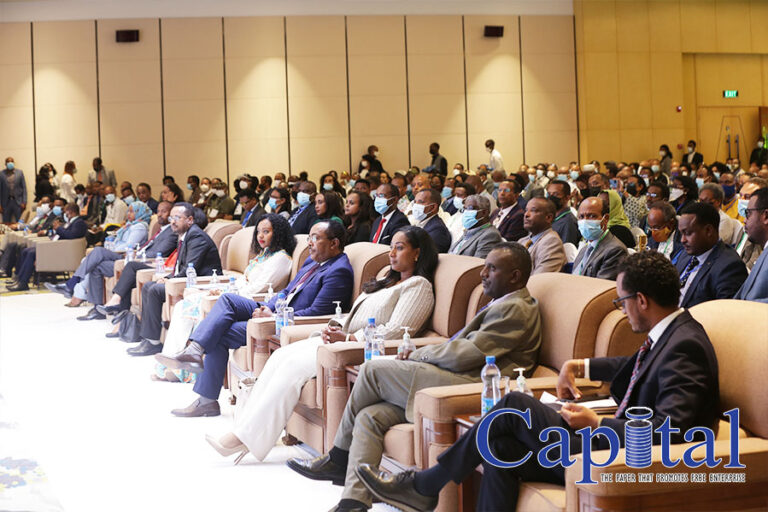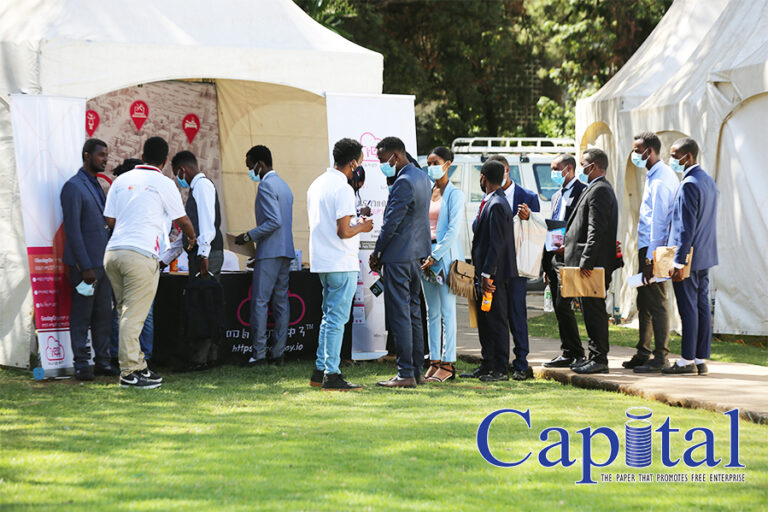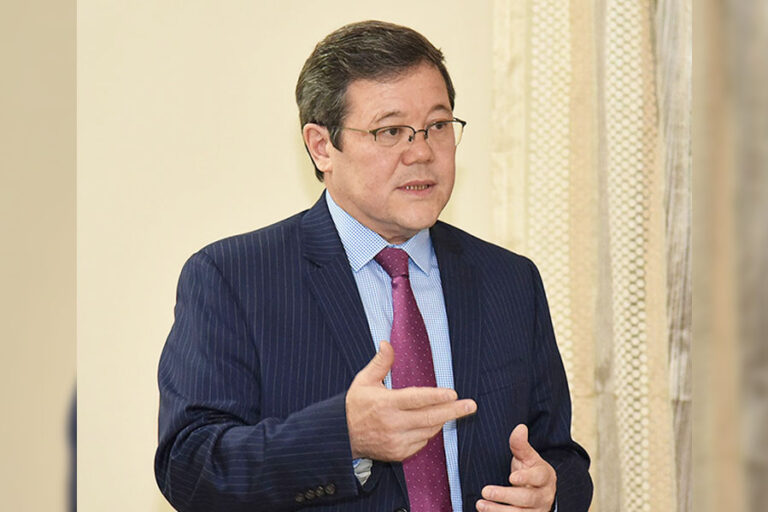(CBO) and Kifiya financial technologies pen agreements to start providing finance through a collateral free digital lending system called Michu, which is a first of its kind for the country.
During the ceremony which was held on January 12, 2022 at Hyatt regency hotel in Addis Ababa, the heads of the two companies, Deribie Asfaw, President of Cooperative Bank of Oromia and Munir Duri, CEO of Kifiya Financial Technologies PLC inked the revolutionary deal.
The platform is the first kind of uncollateralized digital product powered by Kifiya’s Qena, an Al-driven digital lending platform.
The partnership allows Coop bank to tap into Kifiya’s digital lending technology and gives Kifiya the ability to leverage Cooperative Bank of Oromia’s distribution and financial capacity. It is said that CBO will offer lending solutions targeting Micro, Small, and medium businesses (MSMEs), providing access to credit, through groundbreaking and cutting-edge credit scoring systems.
Michu’s ease of access enables users to apply for loans and receive decisions based on credit scoring logic. The loan application process from eligibility and verification to analysis, scoring, and loan disbursement gets completed within a few minutes.
The Michu platform will have different offerings for Micro, Small, and Medium Businesses both in the form of loans and overdraft facilities. The Microloan is aimed towards the working capital needs of roadside traders and micro businesses with a maximum loan amount of 30,000 birr and has a repayment period of 1-4 months.
Whereas, SME loans targets traders at small and medium levels with a maximum loan amount of 150,000 ETB and has a repayment period of up to one year. Similarly, SME loans are intended to cover the working capital of SMEs. In addition, Michu also offers a consumer loan targeting employees of various organizations.
The non-collateral digital lending platform is believed to be an attractive loan that makes loan provision process swift and easy to access at anytime and anywhere as the solution is able to determine credit worthiness as well as avail a flexible payment method. Michu digital lending application is launching this month and is expected to increase Coop Bank borrowers’ base by 30% during the pilot period.
Research shows that Ethiopia’s MSME Financing to GDP Ratio was 2% in 2020. This ratio is lower than South Africa’s 14% and Kenya’s 6% in 2020. Ethiopia’s poor ratio is attributed to the crowding-out of credit by the public sector and high requirements for a loan to MSMEs by Micro-Finances and Commercial Banks. Financial institutions place high requirements partly due to a lack of credible credit ratings.
CBO, Kifiya introduce collateral free digital lending
Diasporas engage in Ethiopia’s priority investment sector
Aimed to increase the engagement of the diaspora community in trade and investment activities in Ethiopia, the Ethiopian Investment Commission held a four-day diaspora investment and exhibition forum which started Tuesday January 11, 2022 stretching to Friday January 14 at skylight hotel Addis Ababa.
Opened with a view to promoting investment potentials in different sectors across Ethiopia, the four-day event served more than 700 participants of the diaspora community by promoting priority sectors identified by the Ethiopian government.
Lelise Neme, Commissioner of Ethiopian Investment Commission, and Ministers from various government organizations presented reports on several investment opportunities identified as priority sectors for Ethiopians in the Diaspora to engage in the Ethiopian market. Presentations were made from the ministries of: Health, Mining, Tourism, Trade and Regional Integration, Agriculture, Industry, as well as the Ethiopian Industrial Parks Development Corporation (IPDC). Furthermore, EIC held panel discussions regarding investment opportunities on the sectors.
According to the commission, the priority sectors identified are health, mining, tourism, trade, agriculture, and manufacturing.
Commissioner Lelise Neme during the occasion called on the Diaspora to invest in their areas of interest and promote the untapped economic potential in Ethiopia as ambassadors.
“EIC aspires for more private sector engagement in the priority sectors,” said the commissioner whilst speaking about the first five months of this year’s performance.
The commission has attracted 1.34 billion dollars in Foreign Direct Investments up from 1.1 billion dollars last year same period showing growths of 21.8 percent.
Careers align at Dereja career expo
The annual job fair for fresh graduates, Dereja career expo was held for two days on January 13 and 14 at Ghion hotel.
The two day event aligns thousands of fresh graduates with potential employing companies to which more than 60 companies participated at this year’s job fair.
The curtains of the event were raised in the presence of Nigussu Tilahun, Commissioner of Ethiopian Job Creation Commission and project managers of the Dereja.com, Info Mind Solution.
Dereja.com is a social enterprise of Info Mind Solutions PLC. (Ethiojobs.net). Established in 2017. The enterprise is dedicated to supporting the over 200,000 fresh graduates entering the labor force by starting their career on the right path.






